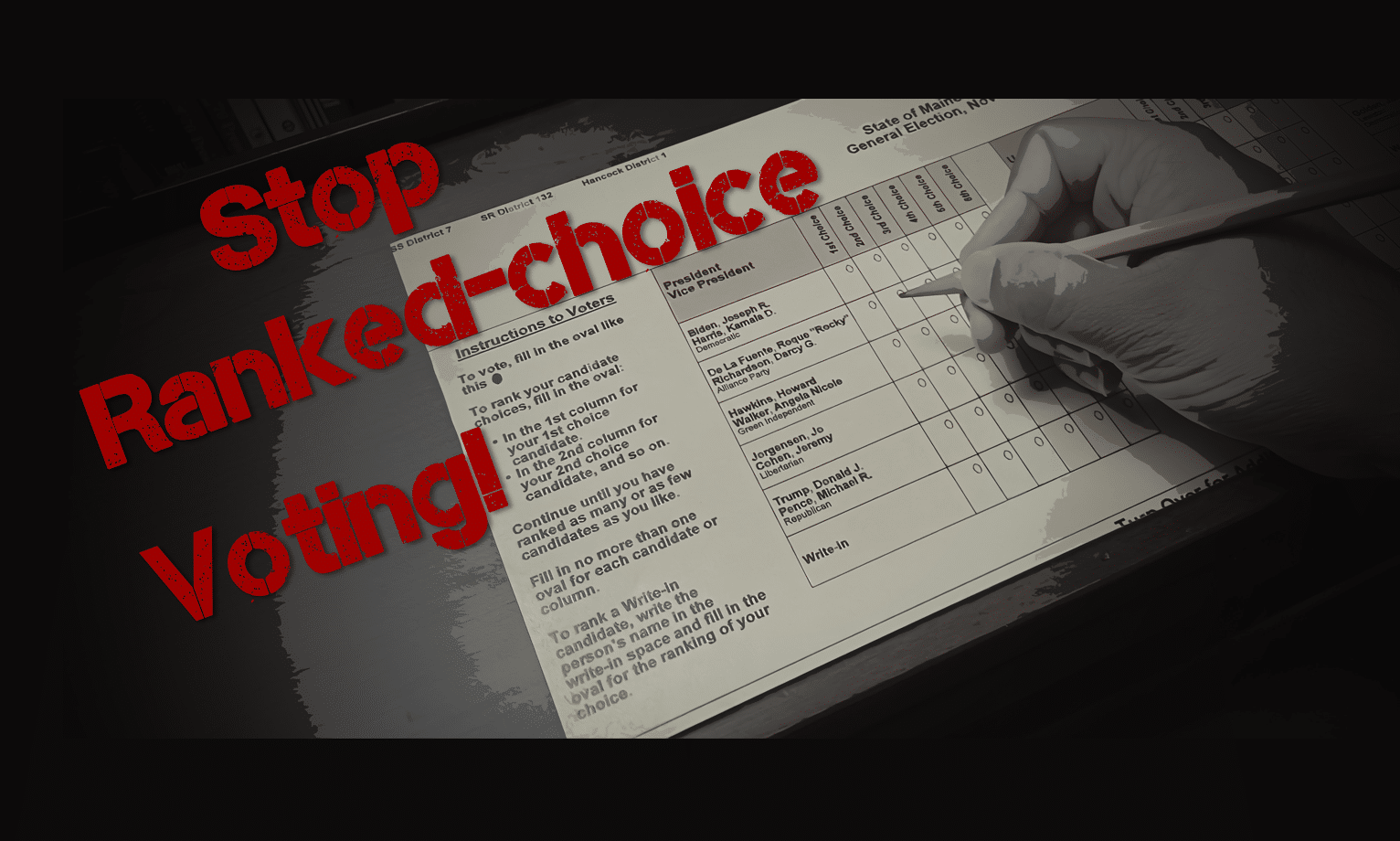Alert Summary
Members of the Illinois General Assembly are considering SB 2363, SB 315, HB 2716, HB 2807, and SB 1456, which would help implement ranked-choice voting (RCV) in the state. The General Assembly must reject RCV and the detrimental effects it would have on election integrity.
Take Action NowContact your Representative
Please help stop SB 2363, SB 315, HB 2716, HB 2807, SB 1456, and every other ranked-choice voting proposal by contacting your state legislators. Urge them to instead enact legislation that ensures total election integrity.
Clicking this button will take you to a page where you can send a pre-written letter, call your officials, and/or send video messages.

URGENT: The Illinois House Ethics & Elections Committee has scheduled a hearing for Ranked-choice Voting (RCV) bills HB 2716 and HB 2807 on Tuesday, March 7, at 2:00 pm CT. The hearing will be conducted in Room 413 of the Stratton Building.
The John Birch Society encourages you to testify against this dangerous Con-Con resolution. Furthermore, regardless of whether you will testify, please fill out a witness slip in opposition to HB 2716 (click here) and HB 2807 (click here). Further information on how to testify remotely can be found here.
Members of the Illinois General Assembly are seeking to pass legislation that would implement ranked-choice voting (RCV) in the state. The General Assembly must reject RCV and the detrimental effects it would have on election integrity.
Multiple pro-RCV bills have been introduced. These include:
- Senate Bill 2363 (SB 2363), to implement RCV for all elections.
- Senate Bill 315 (SB 315), to implement RCV for all state-level, federal-level, and judicial officials.
- House Bill 2716 (HB 2716), to implement RCV in general elections for state executive-branch officials and the General Assembly.
- House Bill 2807 (HB 2807) and Senate Bill 1456 (SB 1456), to implement RCV for U.S. presidential primary elections.
RCV threatens election integrity and undermines the electorate’s ability to choose the best candidate in elections. The May 10, 2021 issue of The New American magazine explains how ranked-choice voting works and why it would harm U.S. elections:
[It] is a complicated system that requires voters to assign a rank to each candidate on the ballot, regardless of whether they support that candidate. If no candidate is ranked first by a majority of voters, the lowest-performing candidate is eliminated. Voters who gave their highest ranking to the eliminated candidate then have their second choice counted instead. This process repeats until one candidate receives a majority.
As implied above, ranked-choice voting can lead to candidates with little genuine support winning elections. The system confuses voters, distracts from policy issues, and forces voters to vote for candidates they otherwise would not support. In the United States, ranked-choice voting was enacted in Maine in 2016 and Alaska in 2020. These efforts, primarily backed by liberals, led to Republican U.S. Representative from Maine Bruce Poliquin losing to Democrat Jared Golden in 2018 despite winning a plurality in the first round. Meanwhile, some political analysts believe that Alaska’s new system, which also eliminates party primaries, will enable liberal Republican Senator Lisa Murkowski’s reelection in 2022 despite her unpopularity among Republicans.
With any voting system, the more complicated it is, the greater the risk of manipulation strategies or fraud. Additionally, RCV would make hand counts much more difficult, creating an excuse for computerized vote counting. By contrast, genuine election integrity must involve hand-counted paper ballots.
Contact your state representative and senator and urge them to oppose SB 2363, SB 315, HB 2716, HB 2807, SB 1456, and any other bill that implements ranked-choice voting in any way. Instead, tell them to enact measures that strengthen election integrity in Illinois.
Although we provide a way to easily email legislators, we know from long experience that it takes a lot more interaction with your legislators to get your point across than that provided by emails alone.
That's why we provide an easy way not only to email them, but to contact them by phone, tweet, and even video message them.
